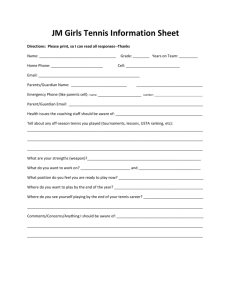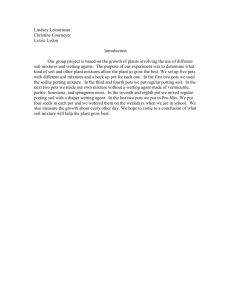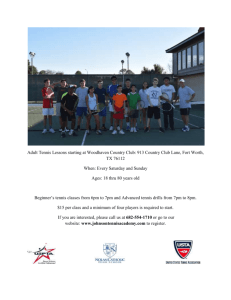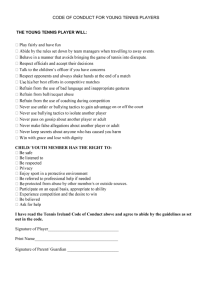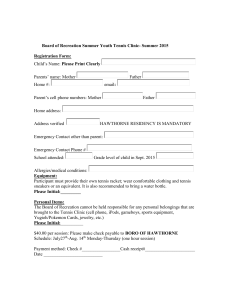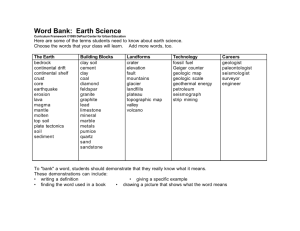4ExperimentHomework
advertisement
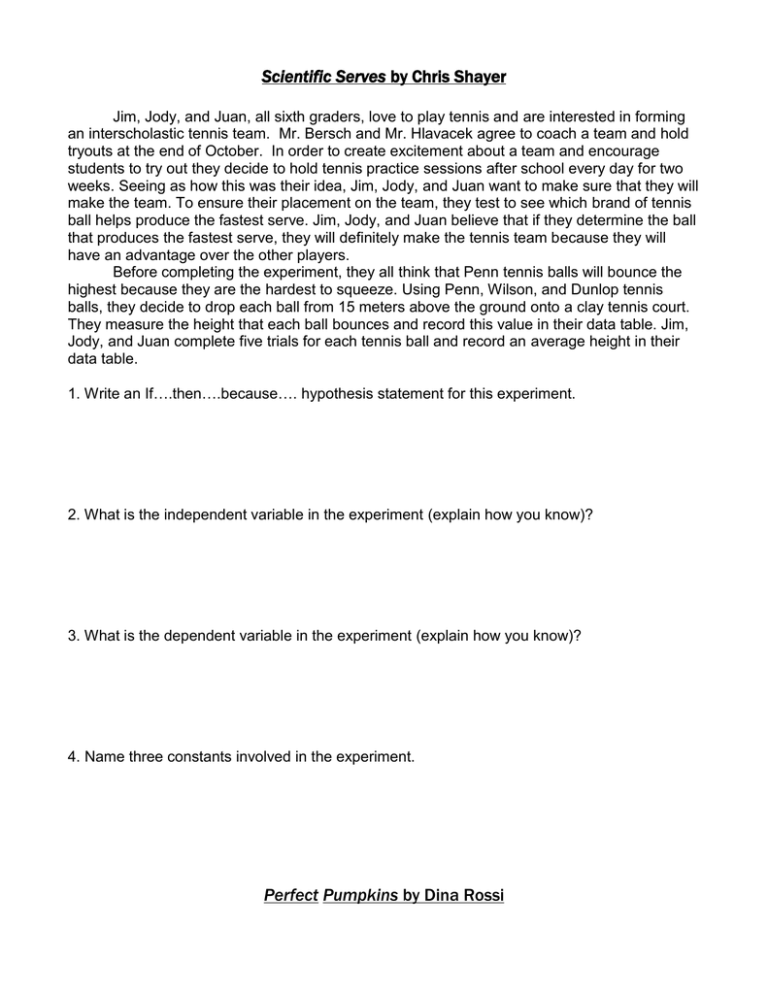
Scientific Serves by Chris Shayer Jim, Jody, and Juan, all sixth graders, love to play tennis and are interested in forming an interscholastic tennis team. Mr. Bersch and Mr. Hlavacek agree to coach a team and hold tryouts at the end of October. In order to create excitement about a team and encourage students to try out they decide to hold tennis practice sessions after school every day for two weeks. Seeing as how this was their idea, Jim, Jody, and Juan want to make sure that they will make the team. To ensure their placement on the team, they test to see which brand of tennis ball helps produce the fastest serve. Jim, Jody, and Juan believe that if they determine the ball that produces the fastest serve, they will definitely make the tennis team because they will have an advantage over the other players. Before completing the experiment, they all think that Penn tennis balls will bounce the highest because they are the hardest to squeeze. Using Penn, Wilson, and Dunlop tennis balls, they decide to drop each ball from 15 meters above the ground onto a clay tennis court. They measure the height that each ball bounces and record this value in their data table. Jim, Jody, and Juan complete five trials for each tennis ball and record an average height in their data table. 1. Write an If….then….because…. hypothesis statement for this experiment. 2. What is the independent variable in the experiment (explain how you know)? 3. What is the dependent variable in the experiment (explain how you know)? 4. Name three constants involved in the experiment. Perfect Pumpkins by Dina Rossi Alberta, Megan, and Tom are trying to grow the largest pumpkin for the state fair. They decide to use the “Back 40” at Lake Shore to plant a garden. They want to test which type of soil is best suited for growing pumpkins. Alberta, Megan, and Tom decide that if they can determine which type of soil is best suited to grow pumpkins, they will win the blue ribbon. Before completing the tests, they all think that potting soil will work the best because it contains plenty of organic material, which helps the soil hold water. They plant pumpkin seeds in regular dirt dug from behind the school, sandy soil found at Megan’s house, and store bought potting soil. They fill three clay pots with the regular dirt and label them Pot A, Pot B, and Pot C. They also fill three clay pots with the sandy soil and label them Pot A, Pot B, and Pot C. Finally, they fill three clay pots with the potting soil and label them Pot A, Pot B, and Pot C. In each pot, they plant the same species of pumpkin seed, water them with the same amount of water, and place them in the “Back 40” so that they all get the same amount of sunlight. After the pumpkins grow, they measure how much each pumpkin weighs from each type of soil and record their findings. 1. Write an If….then…. hypothesis statement for this experiment. 2. What is the independent variable in this experiment (explain how you know)? 3. What is the dependent variable in the experiment (explain how you know)? 4. What are three constants in this experiment?

